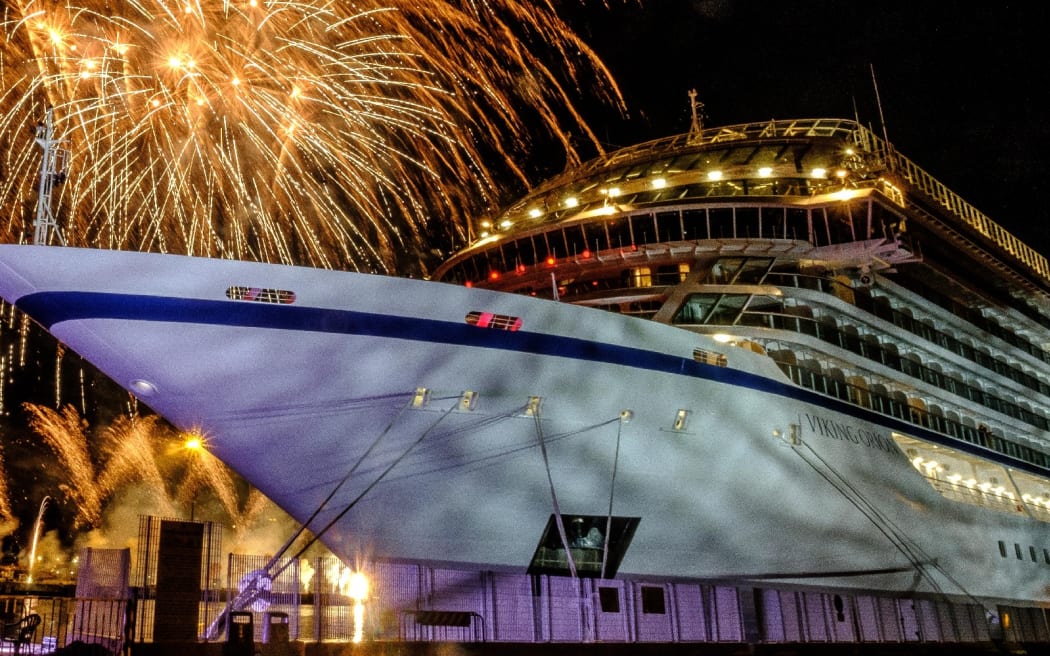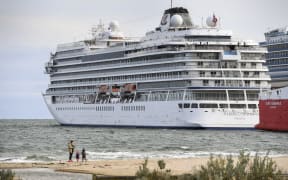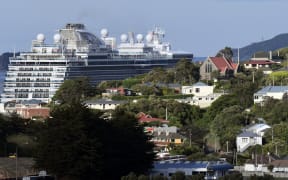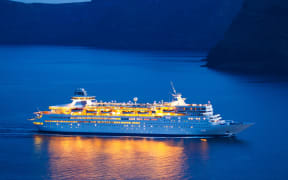
Viking Orion at its naming ceremony Photo: Viking / Supplied
Cruise ship Viking Orion was restricted to visiting approved ports and asked to leave New Zealand waters because of algae on its hull, the Ministry for Primary Industries (MPI) said on Monday.
Viking Orion first docked in New Zealand in mid-December.
Biosecurity New Zealand environmental health manager Paul Hallett said approved ports can manage risk better than special marine environments, like Fiordland.
"Approved ports have regular surveillance, our teams are based there, and ships stick to regular vessel pathways," he said.
Despite the restricted status, Viking Orion still visited commercial ports in Dunedin, Christchurch, Wellington, Napier, Tauranga and Auckland.
But Hallett said the ship was given a final departure date.
"Because of the level of algae and barnacles, the vessel was asked to depart New Zealand waters by 29 December. The vessel operators chose to leave Wellington after visiting it on 26 December, to have its hull cleaned in Australia."
The algae and barnacles, or biofouling, was picked up during regular Biosecurity NZ risk assessment and surveillance.
A Viking spokesperson said "a limited amount of standard marine growth [was removed] from the ship's hull in a routine cleaning procedure for nautical vessels".
The ship had to miss several stops on its scheduled itinerary "in order for the required cleaning to be conducted".
"Viking is working directly with guests on compensation for the impact to their voyage," the spokesperson noted, but declined to comment further.
It was believed the cruise missed three stops in Christchurch, Dunedin and Hobart.
Viking Orion was expected to arrive in Melbourne on 2 January.
Hallett confirmed the ship posed less of a risk than the Coral Princess, which had to have snails cleaned off the underside of the ship off the coast of Tauranga a week earlier.
"We know that nearly 90 percent of marine pests arrive in this country on the submerged surfaces of international vessels," he said.
"Such pests can adversely impact New Zealand's economy and environment. This is why New Zealand has some of the highest biofouling standards in the world.
"Some don't have any or minimal impact, but others can cause issues with our marine life, especially in sensitive areas like Fiordland and to commercial industries such as mussel farming."
High-risk organisms associated with biofouling include bivalves, such as mussels and oysters, foliose algae, hydroids, tunicates, sponges, and mobile organisms like crabs and starfish.
Inchcape-McKay Shipping managing director Craig Harris said it was unusual to see cruise ships needing to be cleaned.
He believed the lay-up of ships during the pandemic may be part of the problem.
"They are generally dry-docked and have their hulls cleaned and painted. At the moment, there's a shortage of facilities all around the world of underwater divers or cleaners.
"My suspicion is that's the reason why the ships just have not been able to comply fully."
It was the first time Harris remembered cruise ships being cleaned in New Zealand as they were normally cleaned to a high standard.
Cargo ships were often cleaned, sometimes multiple times a week, he said.
According to MPI, 6121 international vessels arrived in New Zealand between January 2020 and September 2022.
There were 377, or 6 percent vessels that were issued a notice of direction to address biofouling issues.




